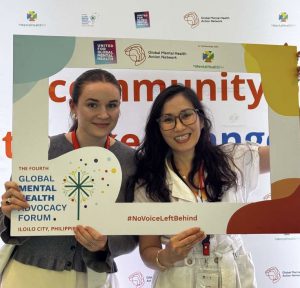A statement from the Sexual and Reproductive Justice Hub at CUNY SPH in response to the Alabama Supreme Court ruling in LePage v. Mobile Infirmary Clinic, Inc.
In a dangerous and unprecedented move, the Alabama State Supreme Court ruled earlier this month that frozen embryos are children under state law. Granting personhood to eggs fertilized and frozen in a laboratory is preposterous on its face and well outside of scientifically established norms, and the implications are broad and chilling.
Fertility services in Alabama are imperiled – witness the swift pause of IVF at the University of Alabama at Birmingham health system, and the subsequent closure of at least two more fertility clinics in the state, as they consider the implications for patients and practitioners who will be exposed to civil and potentially criminal liability.
In a state that already imposes a near-total ban on abortion, the practice of obstetrics and gynecology itself is under threat, as the government claims ever more jurisdiction over women’s bodies and healthcare. These obstructions to routine medical care are detrimental to the recruitment, retention, and training of ob-gyn physicians in Alabama, which is already experiencing a severe shortage of maternal units and rural hospitals. Pregnant women in the state have to travel up to 70 miles to access ob-gyn care. Limited access to healthcare exacerbates the risk of preterm deliveries, low birth weight, maternal mortality, and infant mortality. These risks are already alarmingly high in Alabama and throughout the United States, despite being a high-income nation. At 41.4 deaths per 100,000 births, Alabama has the fourth highest rate of maternal mortality in the country. Alabama also experiences the third highest rate of infant mortality. Moreover, for those who survive, there is a devastating lack of infrastructure to support infants and families.
“The consequences of Alabama’s failure across the board to support reproductive health are dire,” says Terry McGovern, senior associate dean for academic and student affairs. “Reproductive health is a cornerstone of overall population health. Society suffers when there is no investment in women’s and children’s health.”
As Alabama has gone, other states will undoubtedly try to follow; currently 14 states are considering embryonic or fetal personhood bills.
At the time of this writing, Alabama’s governor, attorney general, and both sides of the state senate have professed support for protecting IVF in Alabama, and there is reason to hope that new legislation will reverse the state supreme court’s ruling. Threats to women’s healthcare and bodily autonomy are rapidly increasing, as evidenced not only by this ruling, but the myriad attacks on medical abortion and even contraception across the nation. These attacks contradict sound scientific research and evidence, impede standard healthcare, and will lead to ongoing human rights violations.
“Our core mission at CUNY SPH is to advocate for evidence-based policy and action that advances social justice and improves health outcomes for all, and we will continue to champion that, especially in the face of threats to public health and human rights” says CUNY SPH Dean Ayman El-Mohandes.
As public health practitioners devoted to health as a human right, we decry the Alabama Supreme Court’s decision and call for a rational evidence-based approach to sexual and reproductive healthcare throughout the U.S.
The undersigned are deans, faculty, research, and staff members affiliated with the Sexual and Reproductive Justice Hub at CUNY SPH:
Terry McGovern, Senior Associate Dean of Academic and Student Affairs
Lynn Roberts, Associate Dean of Student Affairs and Alumni Relations
Assistant Professor of Community Health and Social Sciences
Diana Romero, Professor of Community Health and Social Sciences
Director of the Maternal, Child, Reproductive, and Sexual Health specialization
Heidi Jones, Associate Professor of Epidemiology and Biostatistics
Meredith Manze, Associate Professor of Community Health and Social Sciences
Suzanne McDermott, Professor of Environmental, Occupational, and Geospatial Health Sciences
Clarisa Bencomo, Project Director for Gender Justice
Danielle Greene, Executive Director of State and Local Public Health Initiatives
Deborah Levine, Harlem Health Initiative Community Outreach Program Director
Ayman El-Mohandes, Dean of CUNY SPH




